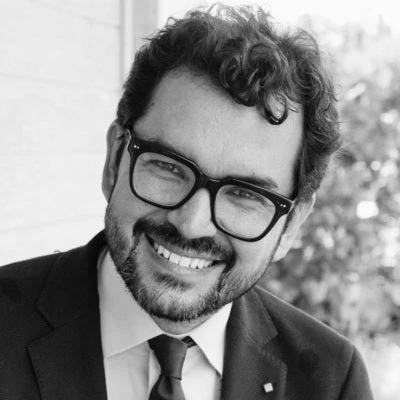 Teacher helping elementary school girl in class. Photo: Shutterstock / Monkey Business Images
Teacher helping elementary school girl in class. Photo: Shutterstock / Monkey Business Images
School leaders have taken the primary responsibility of ensuring schools navigate the uncertainty of the Covid-19 crisis. As of February 2022, Around 27 percent of countries continue to have partially or fully closed schools, leaving close to 870 million students with disruptions to their education. While the pandemic has created a context for education systems to transform teaching and learning experiences, it is now the work of practitioners, government bodies, and researchers to orient and articulate the challenges to the broader education community and to create structures that will help school leaders build the traits and capacities to address the challenges of learning recovery and system resilience.
The Management Capacity Service Delivery (MSCD) Thematic Group at the World Bank and Global School Leaders hosted a three-part webinar series from March to September 2021 to understand the role of school leaders and their subsequent impact on student learning outcomes. These virtual gatherings brought together representatives of academia, government, civil society, and philanthropy from countries in Latin America, Africa, and Asia to answer three big questions:
1. How is the role of a school leader evolving to meet the needs of crisis management?
Research on education and disaster management shows the importance of school leadership on student outcomes. A study in Haiti, finds that better-managed schools were better prepared to recover from the devastating impact of Hurricane Matthew.
When COVID-19 forced school closures around the world, we learned that school leaders had to shift their approaches to managing their schools. In Pakistan school leaders partnered with communities to ensure strategic resource allocation for children with limited access to digital devices. This required school leaders to shift the culture that had governed the school-community relationship for decades. In South Africa school leaders are prioritizing their response to their school communities' social and emotional needs, repositioning schools towards “caring institutions”.
2. What are we learning from recent evaluations of school leadership capacity building?
To have a lasting impact on student outcomes, school leaders need more than just technical assistance and grants. School leadership capacity-building programs need to focus on instructional leadership, encourage school leaders to take risks, and provide a shared learning environment.
Training for school leaders, when it exists, often focuses on administrative processes rather than culture-building and instructional leadership skills which are needed to improve student learning. In Ghana, for example school managers have limited training and are mired in mundane tasks like “filling out forms that don't go anywhere”, restricting them from focusing on improving student learning. An evaluation of school management practices in Mexico found that the most effective school leaders were those who went beyond the confines of their role to ensure student learning continued.
3. What are the enabling conditions needed for school leaders to thrive?
School leaders who have the autonomy and trust of authorities, share deep partnerships with key stakeholders in the community, and have the agency to translate their vision to action are more likely to have a lasting impact on student learning.
While the world grappled with the daunting effects of the pandemic, policy makers and governments struggled to make quick decisions, and school leaders had to make decisions based on incomplete information. This points to the need for continued devolution of leadership responsibilities to the school leader level. School leaders who have agency are empowered to set a culture of high expectations in schools, target high-need areas, and double down on improving teaching and learning, both within the school and beyond. In Sobral, Brazil, school leaders collaborated with local leaders to design simple management strategies focused on learning, opening new ways of looking at leadership roles in schools.
As we enter the third year of the pandemic, much remains uncertain. We know that when school leaders are given agency and appropriate resources, they can translate policy to practice and are critical in transforming teaching and learning experiences. The right principal defines the spirit of the school. That person defines the commitment that everyone in the school community must achieve learning objectives for children and ensure they have a happy experience.
If you would like to listen to these discussions in greater detail, please find the link to all three webinars below.
- Webinar #1: How is the role of a school leader evolving to meet the needs of crisis management? Featuring: Jaime Saavedra (Global Director of Education, World Bank), Syed Asaad (President and CEO, The Citizens Foundation Pakistan), Renata Lemos (Senior Economist, World Bank), Allistair Witten (Leadership Consultant) and and Agustin Porres (Regional Director, Varkey Foundation)
- Webinar #2: What are we learning from recent evaluations of school leadership capacity building? Featuring: Harry Patrinos (Manager Europe and Central Asia Region, World Bank), Sabrin Beg (Assistant Professor, University of Delaware), Folawe Omikunle (CEO, Teach for Nigeria), Iwan Syarhil (Director General for Teachers and Education Personnel, Ministry of Education, Indonesia), and Rafael. E. De Hoyos, (Program Leader, Europe, and Central Asia, World Bank)
- Webinar #3: What are the enabling conditions needed for school leaders to thrive? Featuring: Asyia Kazmi (Global Education Policy Lead, Gates Foundation), Toby Linden (Manager East Asia, and Pacific Region, World Bank), Anna Penido (Executive Director, Lemann Centre, Brazil), Beatriz Pont (Senior Analyst, Education Policy, OECD), and George Werner (Former Minister of Education, Liberia)





Join the Conversation